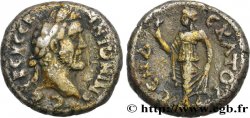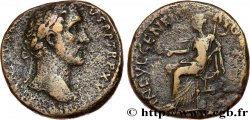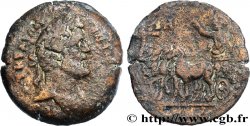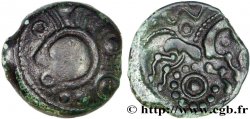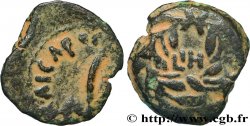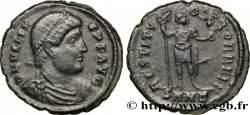v31_0271 - ANTONINUS PIUS Dupondius, (MB, Æ 24)
MONNAIES 31 (2007)
Starting price : 175.00 €
Estimate : 250.00 €
unsold lot
Starting price : 175.00 €
Estimate : 250.00 €
unsold lot
Type : Dupondius, (MB, Æ 24)
Date: 156-157
Mint name / Town : Roma
Metal : copper
Diameter : 24 mm
Orientation dies : 6 h.
Weight : 12,72 g.
Rarity : R1
Coments on the condition:
Exemplaire sur un flan court, irrégulier et épais, bien centré des deux côtés. Beau portrait. Revers de haut relief. Faiblesse de frappe sur les légendes. Jolie patine vert noir légèrement granuleuse
Catalogue references :
Obverse
Obverse legend : ANTONINVS AVG - PIVS P P IMP II.
Obverse description : Tête radié d’Antonin le Pieux à droite (O*).
Obverse translation : “Antoninus Augustus Pius Pater Patriæ Imperator iterum”, (Antonin auguste, pieux, père de la patrie, empereur pour la seconde fois).
Reverse
Reverse legend : TR POT XX - C-OS IIII/ S|C.
Reverse description : Providentia (la Providence) drapée debout à gauche, pointant la main au-dessus d’un globe et tenant de la main gauche un sceptre long.
Reverse translation : “Tribunicia Potestate vicesimum Consul quartum”, (Revêtu de la vingtième puissance tribunitienne, consul pour la quatrième fois).
Commentary
Ce dupondius est frappé au moment des vicennalia de l’empereur.
This dupondius is struck at the time of the emperor's vicennalia
This dupondius is struck at the time of the emperor's vicennalia








 Report a mistake
Report a mistake Print the page
Print the page Share my selection
Share my selection Ask a question
Ask a question Consign / sell
Consign / sell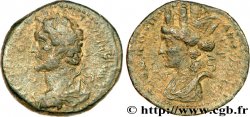
 Full data
Full data